ASEAN Youth lead Change with UN partnership in Kuala Lumpur
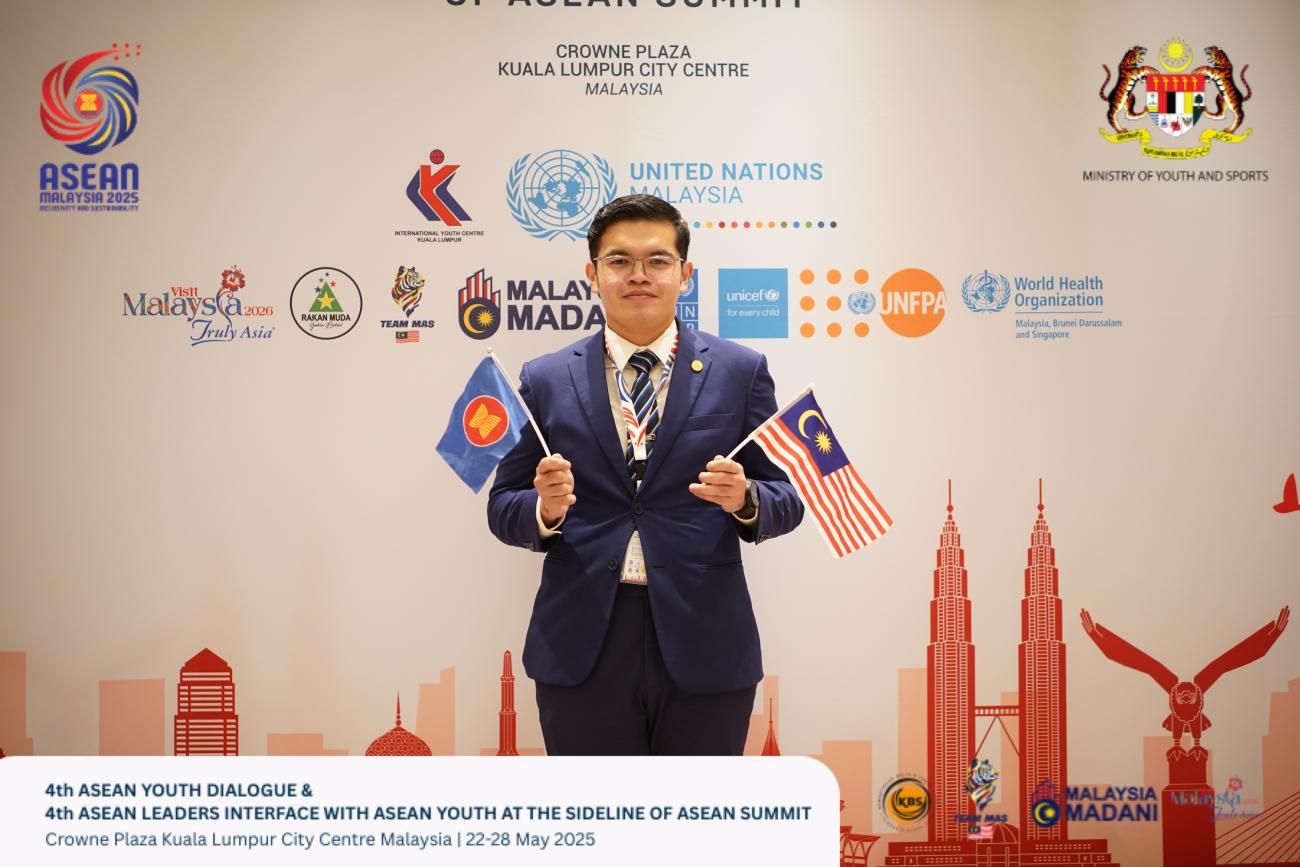
ASEAN Youth Dialogue 2025 highlights UN-Malaysia partnership in shaping a sustainable future
The grand ballroom of Crowne Plaza Kuala Lumpur reverberated with the vibrant voices of young changemakers from across Southeast Asia as the 4th ASEAN Youth Dialogue (AYD) concluded a transformative week-long program under the theme of “Youth for a Sustainable Future: Empowering Inclusion and Driving Change in ASEAN.”
Organized by the Ministry of Youth and Sports Malaysia in conjunction with Malaysia’s ASEAN Chairmanship under the national theme “Inclusivity and Sustainability”, the Dialogue saw 85 youth leaders from ASEAN member states and Timor-Leste convene to shape regional development through their shared aspirations. The Dialogue stood apart not only for its powerful youth-led agenda, but also for the significant role played by the United Nations in Malaysia, Singapore and Brunei Darussalam — the dialogue’s strategic partner—in steering discussions around global and regional futures, intergenerational justice and sustainable development.
Malaysia-UN: A Strategic Anchor for ASEAN Youth
The United Nations in Malaysia, Singapore and Brunei Darussalam, led by the UN Resident Coordinator’s Office and supported by UN agencies UNDP, UNICEF, UNFPA, and WHO, was instrumental in conceptualizing and curating thematic dialogue sessions grounded in the UN’s Pact for the Future—the visionary framework aimed at revitalizing global cooperation and ensuring a fairer, greener, and more secure world for future generations.
“Youth are not just future leaders — they are leaders today. Their ideas, energy, and voices are essential to building a just, inclusive, and sustainable ASEAN. The United Nations remains steadfast in its support for youth across ASEAN and globally. Through initiatives like the UN Youth Strategy (Youth2030), the Youth Environment Living Labs (YELL) in Malaysia, and active engagement with national youth councils and parliamentarians, the UN ensures young people are not only heard but are shaping policies and solutions”, said Robert Gass, United Nations Resident Coordinator ad interim.
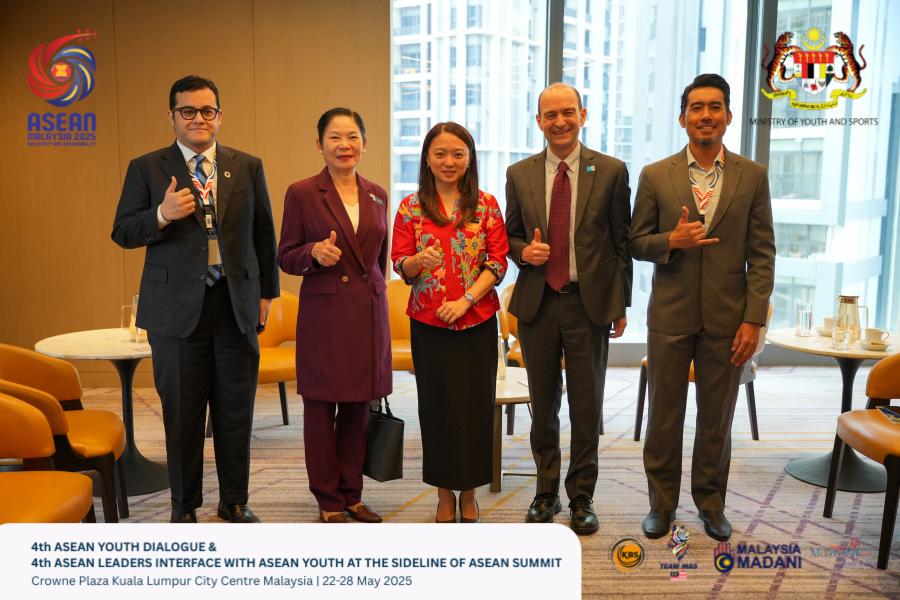
As Robert Gass noted, the UN in Malaysia continues to work hand-in-hand with youth, providing platforms for leadership, innovation, and advocacy — because empowering youth is essential to achieving the Sustainable Development Goals and creating a future that leaves no one behind.
As a strategic partner, the United Nations in Malaysia, Singapore and Brunei Darussalam worked closely with the Ministry of Youth and Sports to ensure that each dialogue session was not only informed by evidence-based policy insights but also inclusive of youth voices that often go unheard in decision-making spaces.
“This Dialogue is not just about listening to youth; it’s about placing them at the heart of transformative policymaking for ASEAN,” said Dr. Richard Marshall, Senior Economist at the Office of the UN Resident Coordinator, during the Dialogue’s opening session. “Through the Pact for the Future, we are amplifying the agency of young people to shape policies today for a sustainable tomorrow.”
Future Forward: Youth at the Heart of the Pact
Dr. Marshall’s session, “Future Forward: ASEAN Youth Shaping the World We Want”, spotlighted the significance of Chapter Four: Youth and Future Generations of the Pact. Participants delved into how youth can be catalysts in achieving the Sustainable Development Goals (SDGs) while confronting issues like climate injustice, education inequality, and economic precarity.
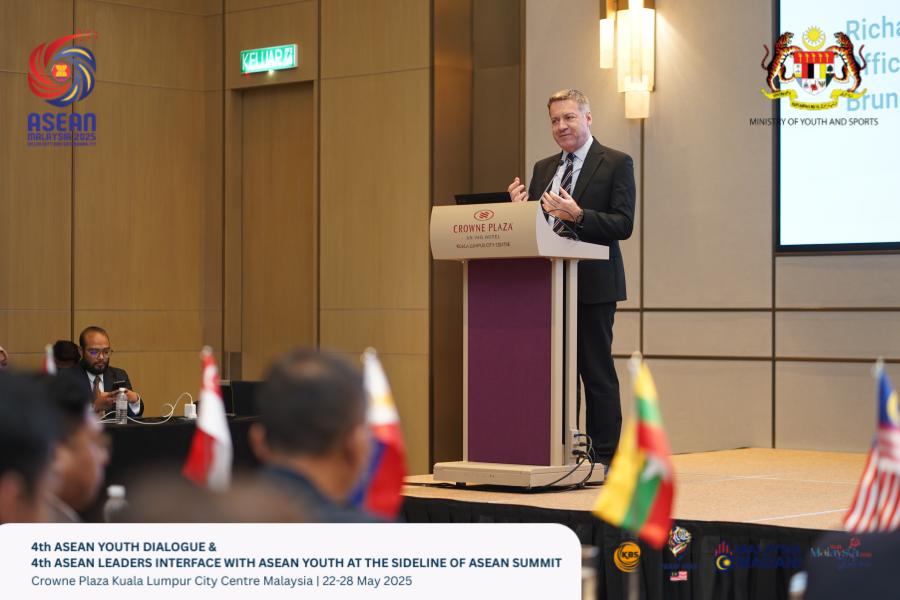
By grounding the conversation in the SDG progress in ASEAN, the session empowered youth to speak on intergenerational equity and participate meaningfully in policymaking processes—mirroring the Dialogue’s larger mission of shaping the ASEAN Youth Resolution presented to ASEAN leaders on 26 May 2025.
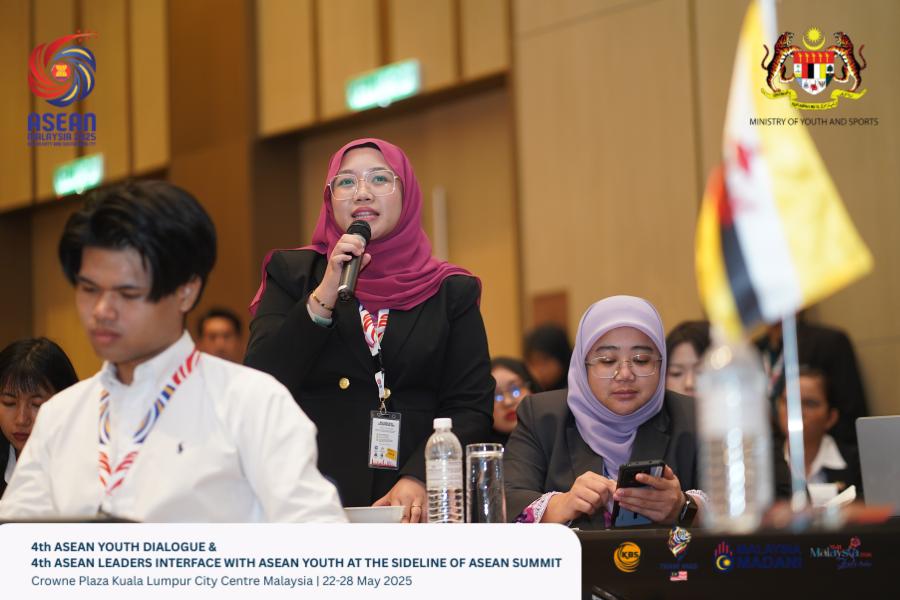
Championing the Right to a Clean and Just Future
In another standout session, the United Nations Development Programme (UNDP), through a collaboration between Agents of Change: Youth and Media for Responsible Business Practices (AOC) and the Youth Environment Living Labs (YELL), explored how youth can hold businesses accountable for adverse environmental impacts in the context of the Right to a Clean, Healthy and Sustainable Environment (R2HE).
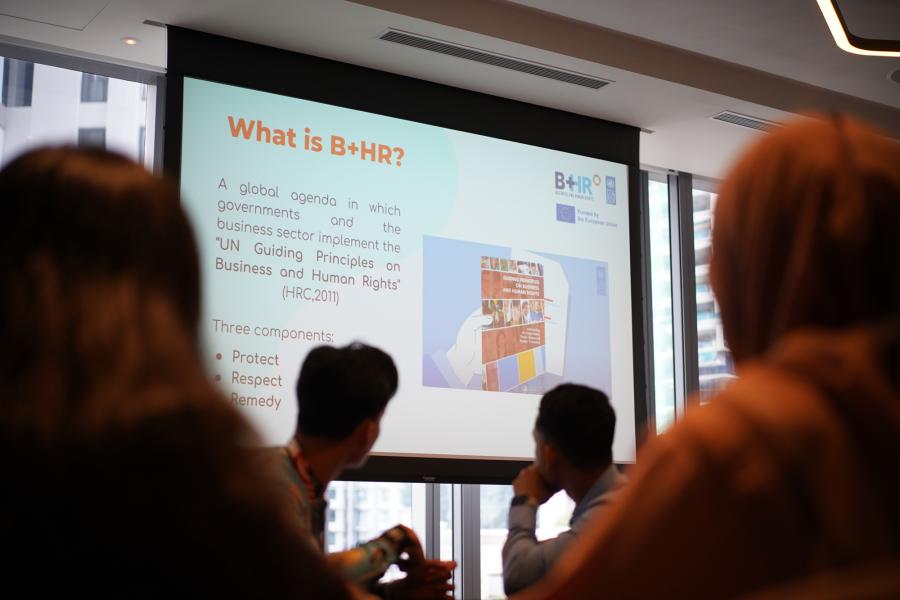
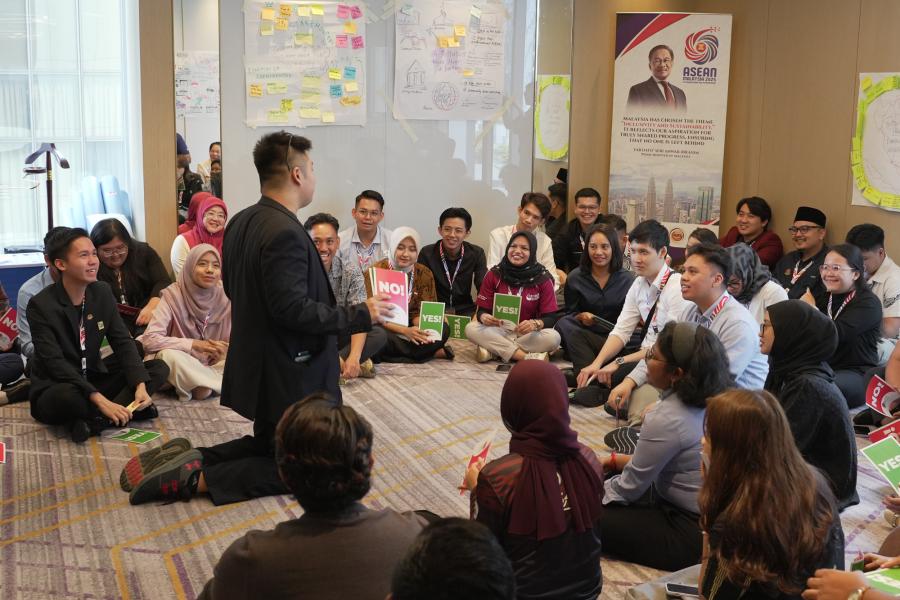
“I want you to think about your role as rightsholders — how do you recenter communities and challenge the existing power dynamics inherent to the business ecosystem?” asked Jehan Wan Aziz, Rule of Law Lead at UNDP Malaysia. Building on this, co-facilitator Lim Su-Jin from YELL guided participants through critical discussions on how efforts to protect our biodiversity, the foundation of all life intrinsically linked to everything we have produced or manufactured, should be grounded in equity and justice. Complementing these discussions, Mark Liao from Sarawak Eco Warriors led hands-on activities that motivated participants to reflect and think about how environmental impacts have affected them, and what a shared declaration on R2HE might mean for the region.
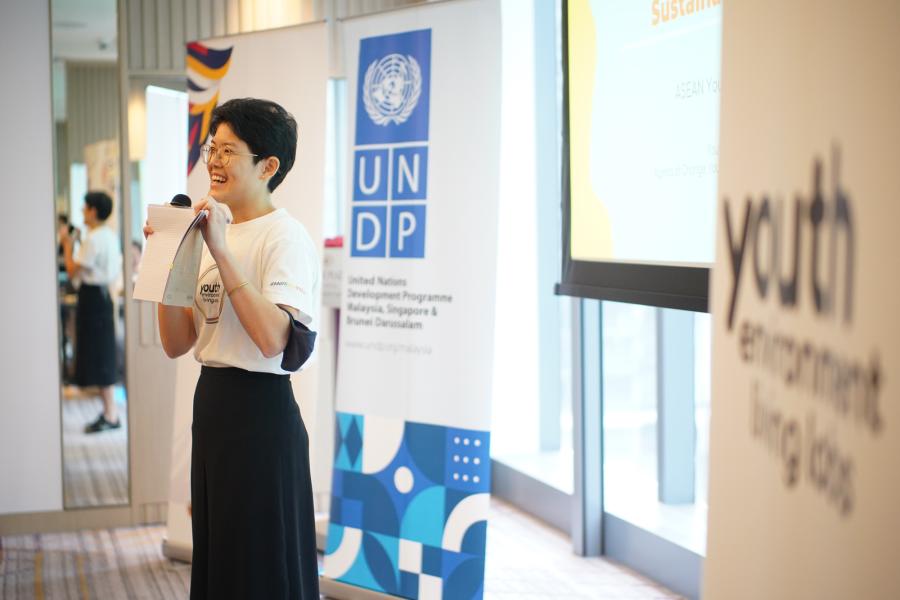
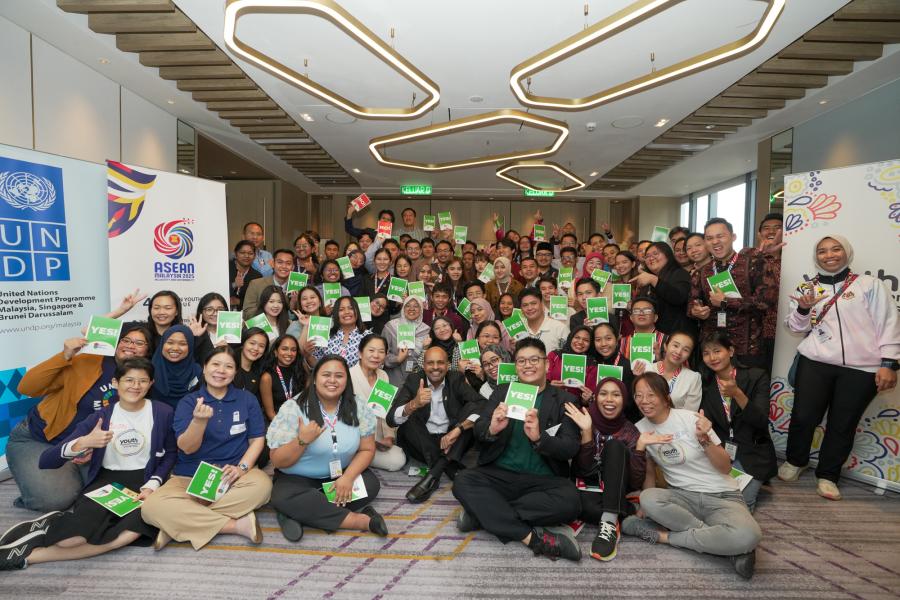
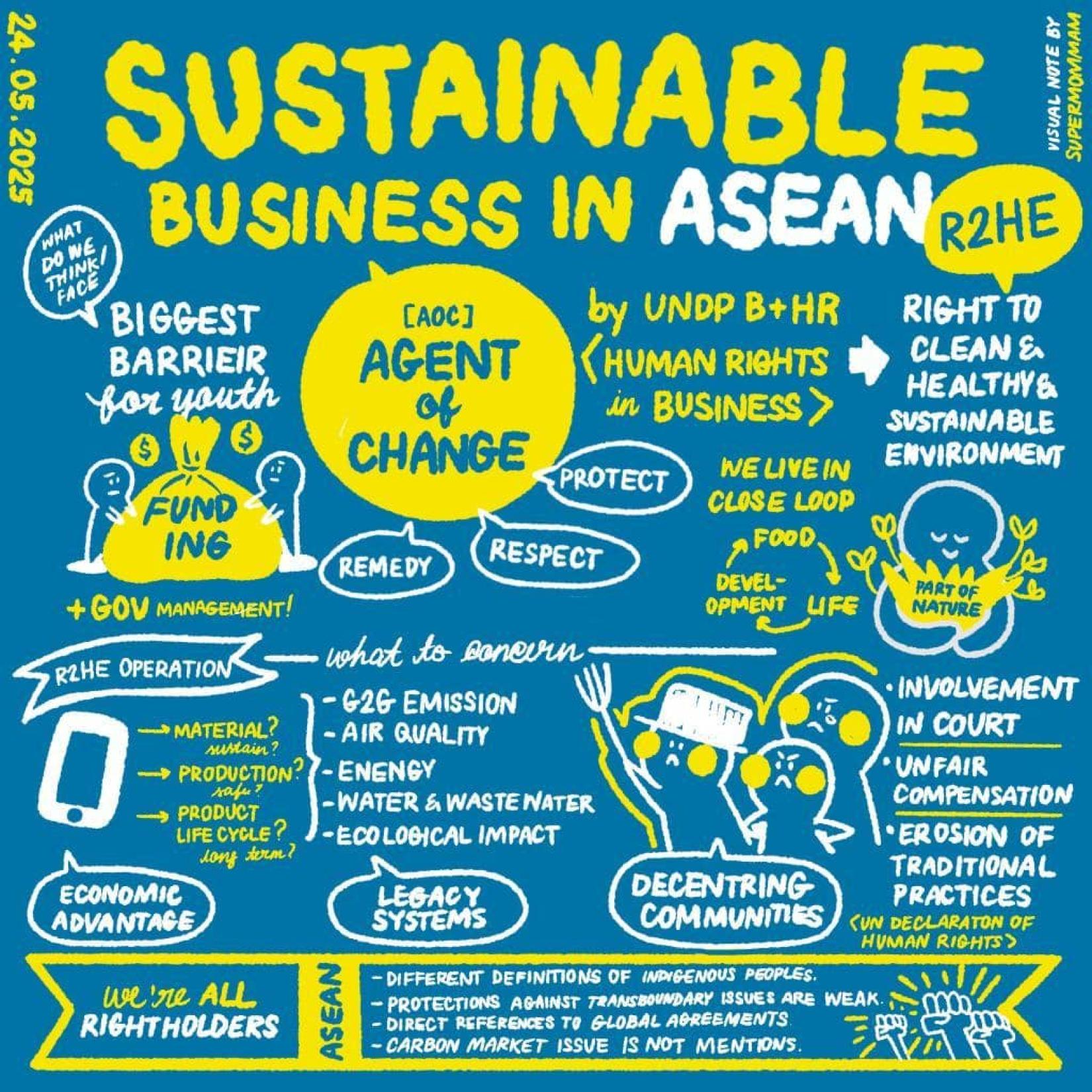
Inclusion and Identity: A Vision for ASEAN’s Youth
UNICEF Malaysia, together with Architects of Diversity (AOD), hosted a unique dialogue learning session that created space for diverse youth to share their lived experiences across topics of inclusion, justice, and representation. For Jason Wee, the co-founder of AOD, “In this period of global instability, young people must step up to the tall order of ensuring the future world is one that includes and defends the dignity of all races and religions. Global peace requires a renewed approach at bridge building and counter-polarisation."
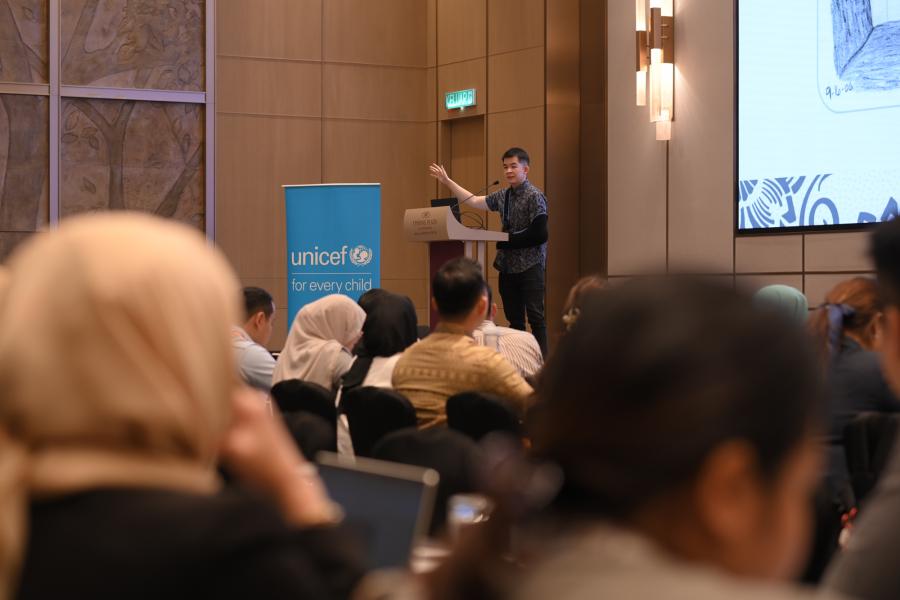
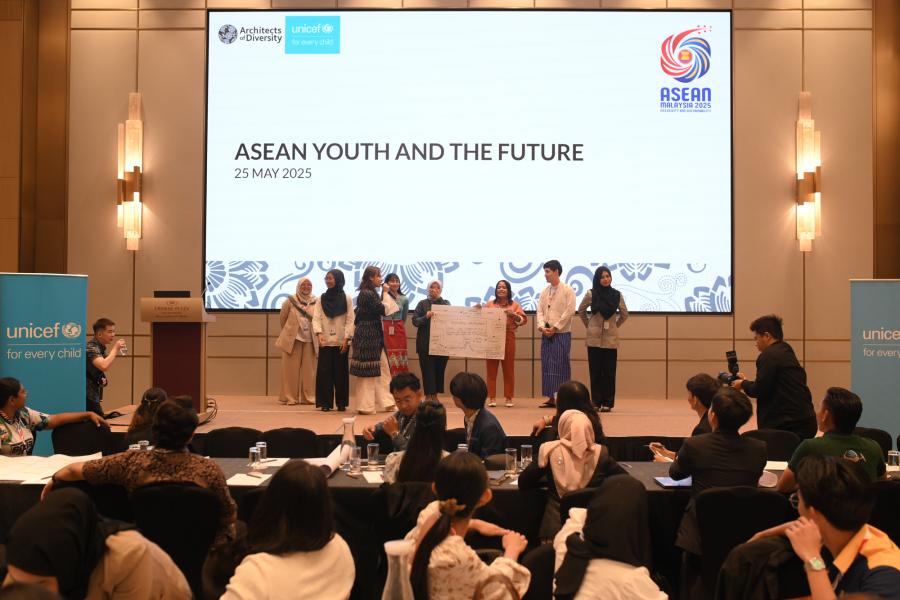
With that vision in mind, Jason, alongside UNICEF experts, facilitated the session dynamically. The energies were flowing as the session emphasized that a truly sustainable future must reflect the diverse identities, struggles, and dreams of ASEAN youth. A simulation exercise grounded by the systems thinking approach gave young delegates the opportunity to uncover policymaking challenges and ideate solutions that is grounded in the empathy comprehensive understanding of issues, impact and collaboration to address the problems that matter to them.
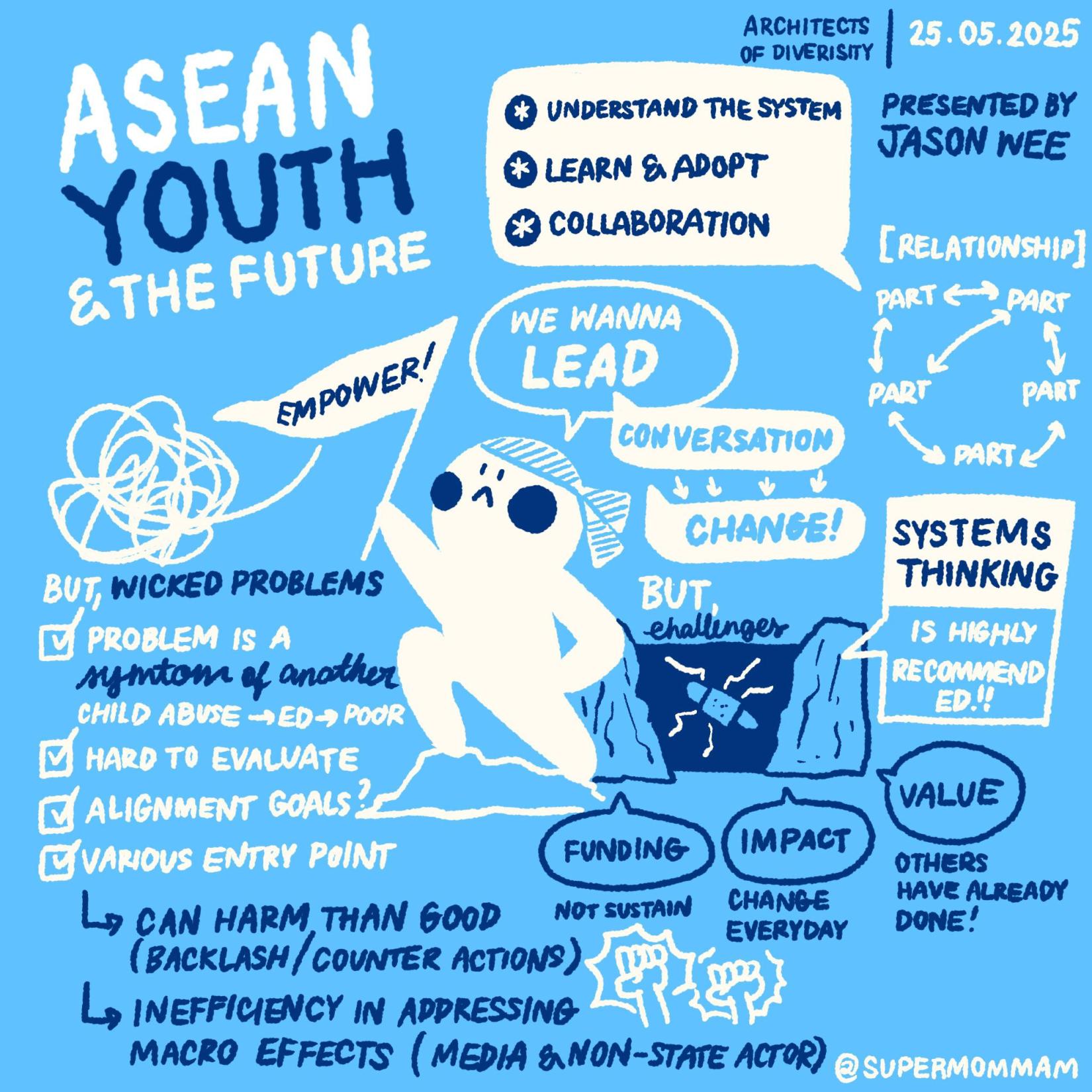
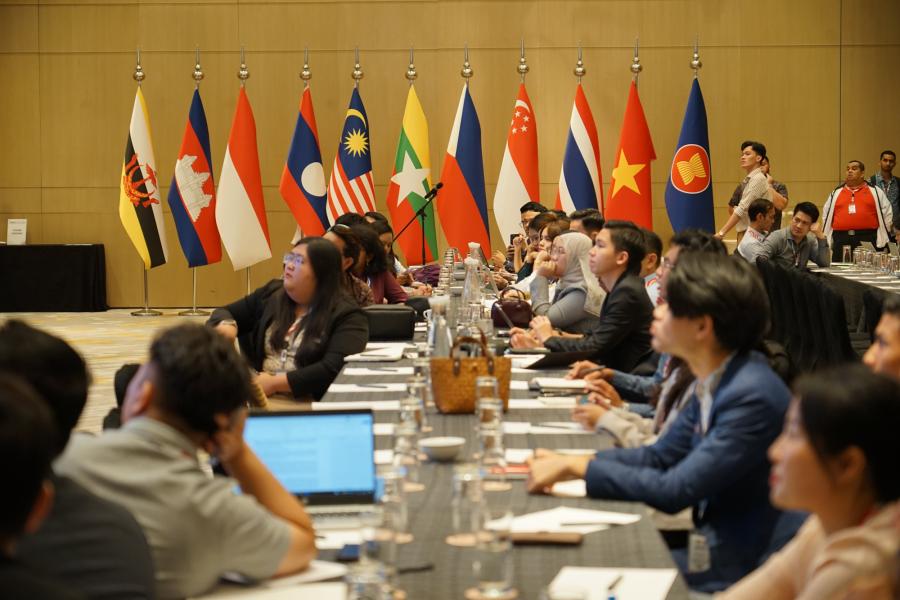
“We cannot plan for the future if we exclude the very people who will inherit it,” said Jessica Sercombe, UNICEF’s Disability and Gender Lead. “Youth-led change must be the default, not the exception.”
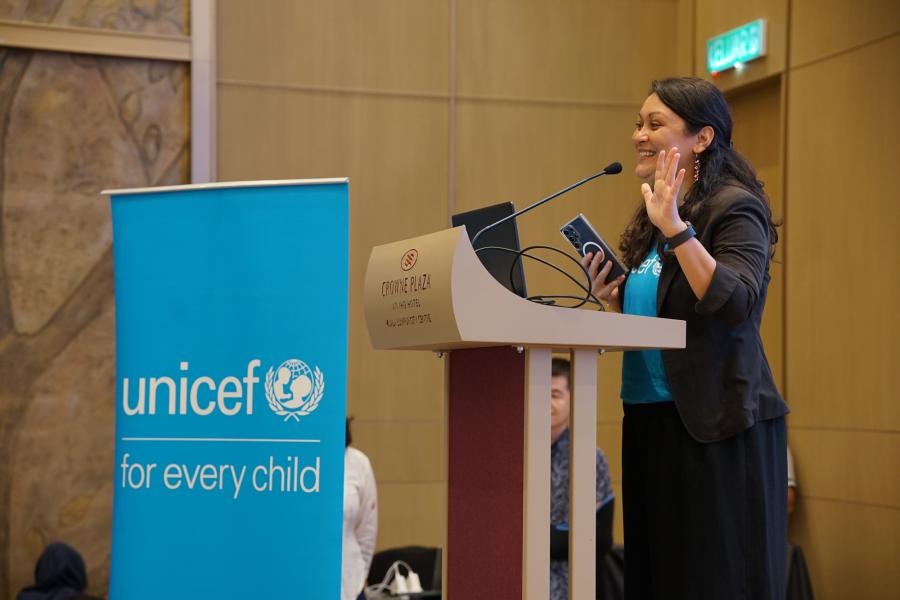
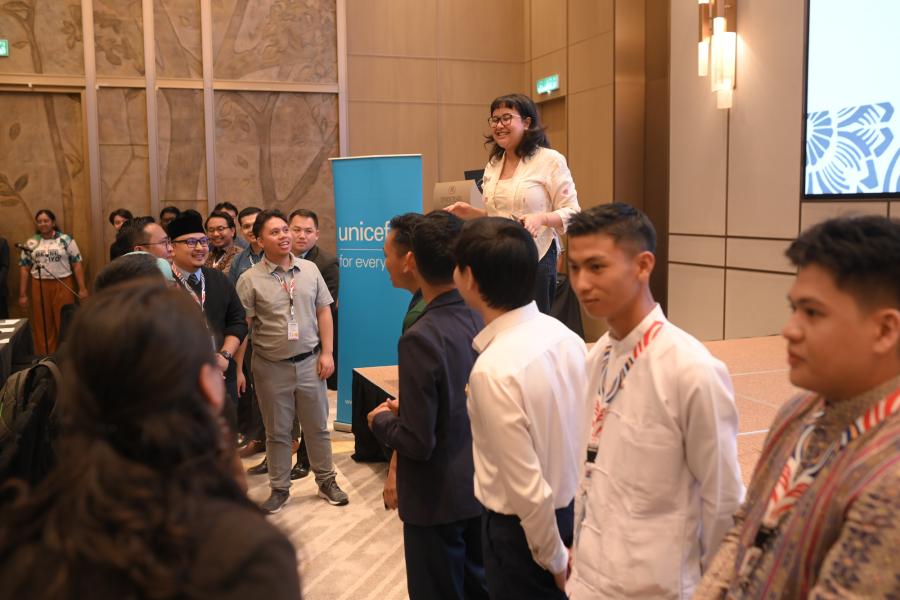
Health, Choices and Well-Being: A Regional Imperative
Closing the thematic sessions was a powerful collaboration between WHO and UNFPA, focusing on youth leadership in regional health resilience and the rights to choice. With over half the ASEAN population under 35, the session emphasized youth as pivotal agents of health transformation—from reproductive rights to mental health and noncommunicable diseases (NCDs).
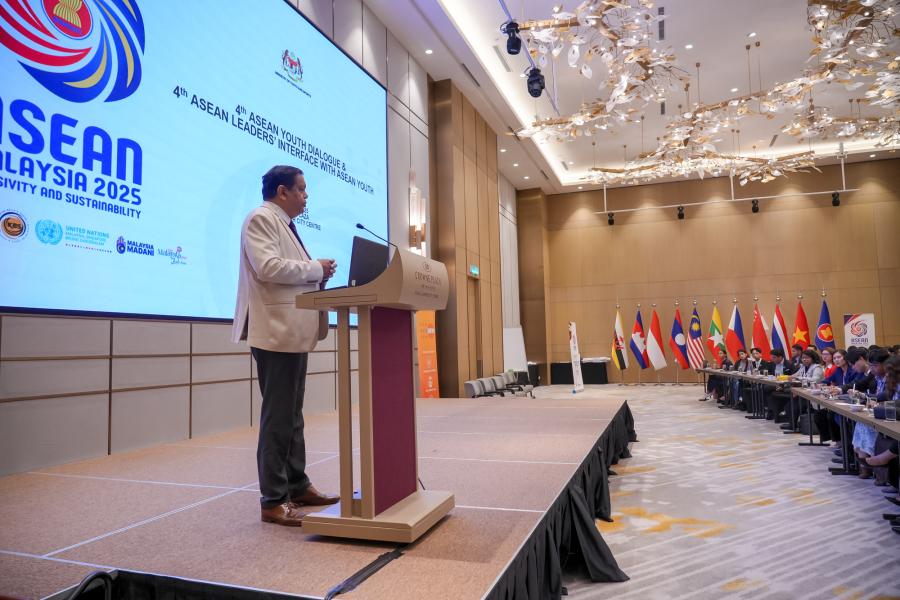
Dr Rabindra Abeyasinghe, WHO Representative to Malaysia, Brunei Darussalam and Singapore and Tengku Aira Tengku Razif, Assistant Representative of UNFPA delivered keynote addresses, framing bodily autonomy, life-cycle approach to demographic resilience and health equity as fundamental rights for a sustainable ASEAN.
In his address, Dr Rabindra Abeyasinghe said “Good health is an asset that needs to be protected throughout life and investing in your health is not a burden rather an opportunity. It’s a smart, long-term strategy for yourself and your country’s prosperity. If we want a resilient and prosperous ASEAN, we must start here with ourselves and with the health and well-being of its citizens through youth ownership and engagement in health programmes.”
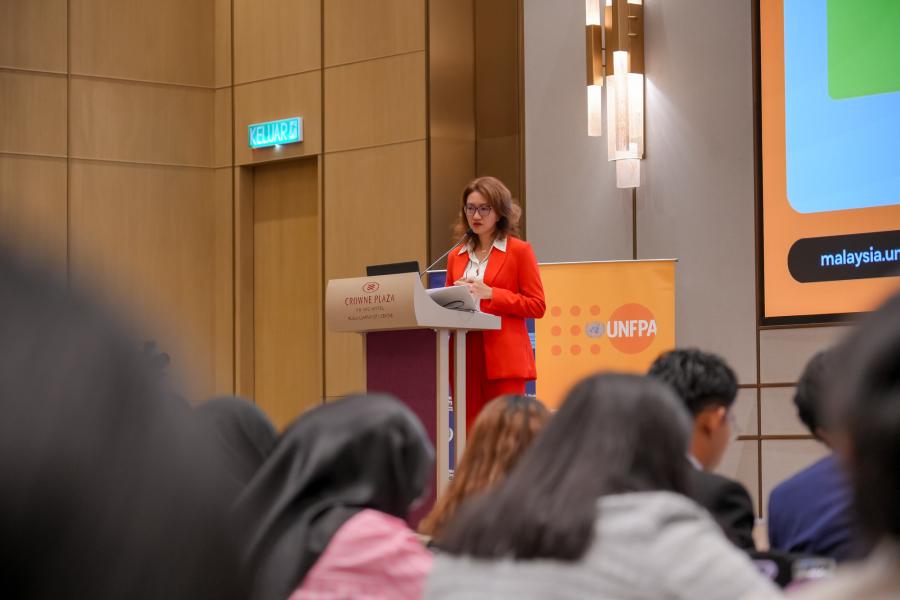
Liyann Ooi, Technical Officer for Behavioural Science, WHO led a thought-provoking and high-energy session that turned the spotlight on everyday behaviours shaping health outcomes. She unpacked the science behind how youth can build and spread healthier habits. The session also saw ASEAN youth leaders making personal health pledges, take part in an energizing dance break and committing to stronger habits for health, resilience and leadership.
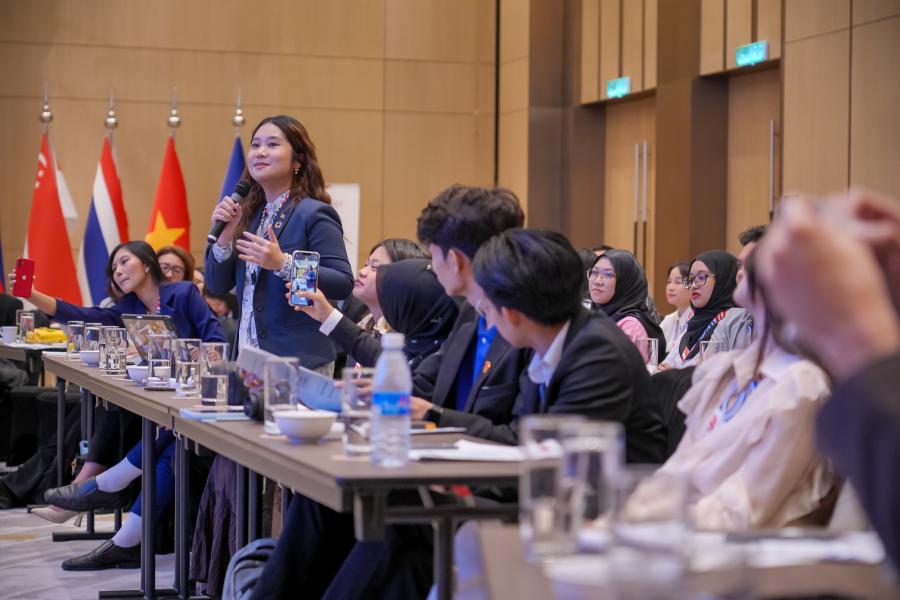
This was followed by a lively panel discussion moderated by Liyann, made up of young changemakers and experts, Arissa Jemaima Ikram, Founder & Executive Director, Doctors on Ground, Dr Collins Santhanasamy – Founder, Youth4DRR, Dr Vilashini Somiah – Senior Lecturer (Gender STudies, Univery of Malaya and Siti Aishah Hassan Hasri - Founder SPOT Community Project, shared strategies to better integrate youths into national and regional health systems. “Resilience isn’t built in isolation—it is grown through inclusion, investment, and intergenerational solidarity,” said Dr Vilashini Somiah, anthropologist and gender studies expert from Universiti Malaya, during the panel.
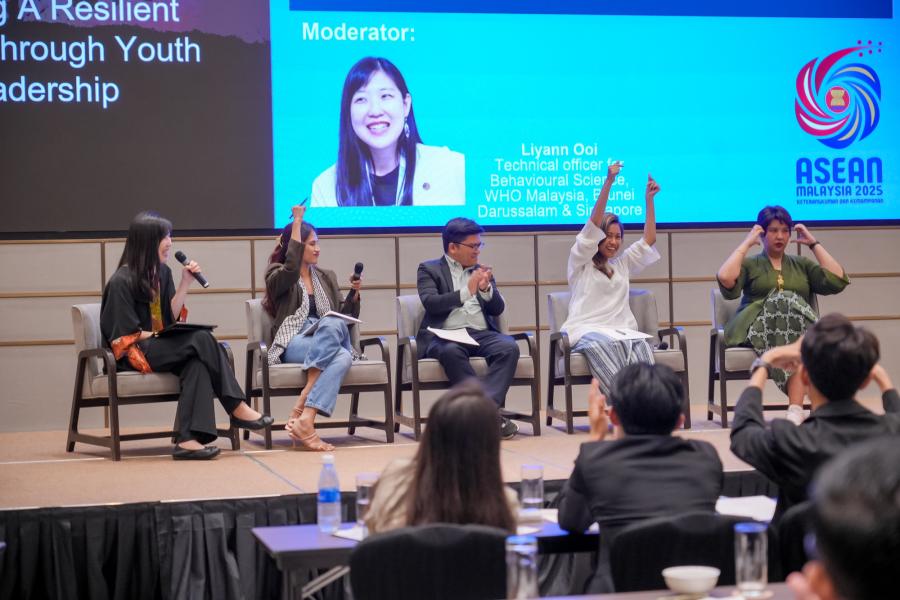
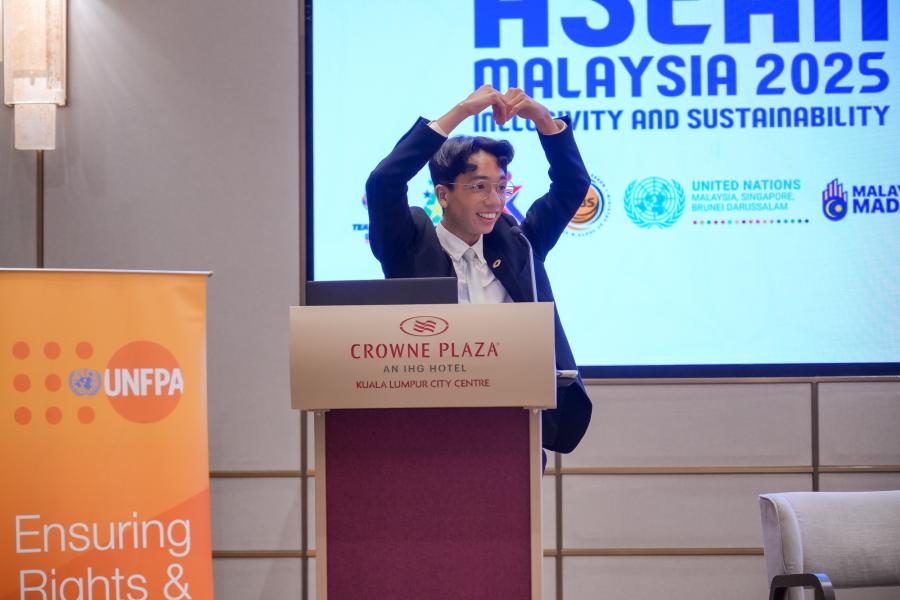
From Dialogue to Action: Influencing the ASEAN Youth Resolution
The week-long exchange of insights, ideas, and lived experiences culminated in the ASEAN Youth Resolution, a document that embodies the spirit of this Dialogue. Informed by the UN-led sessions and the Pact for the Future, the Resolution was presented to ASEAN Leaders during the ASEAN Summit Interface with Youth, asserting the role of young people as essential partners in shaping the region’s collective destiny.
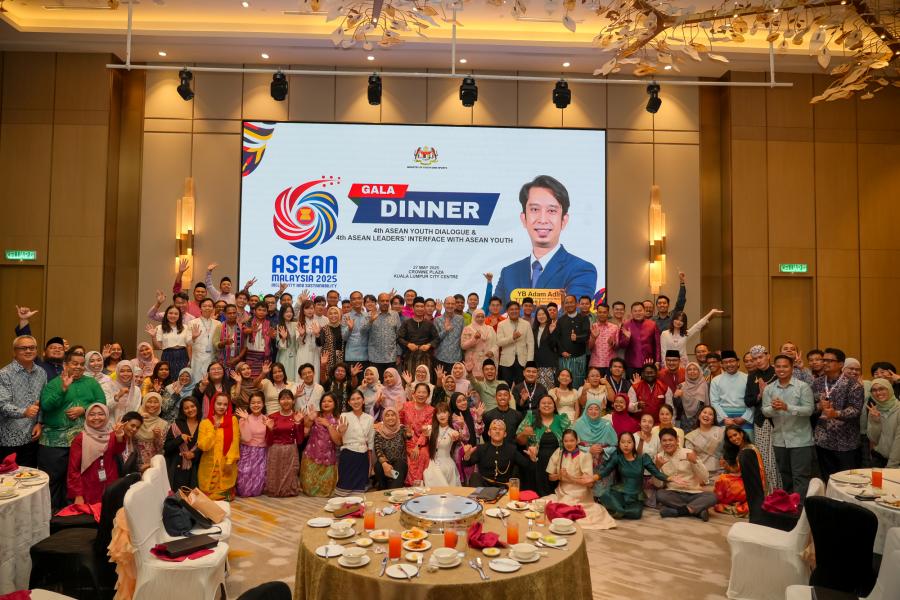
Looking Ahead: A Legacy of Collaboration
As the curtains fall on the 4th ASEAN Youth Dialogue, one message resounds with clarity: Youth are not waiting for change, they are leading it.
Thanks to the strategic partnership between the Ministry of Youth and Sports Malaysia and the United Nations in Malaysia, the Dialogue did more than convene—it catalyzed. It empowered young leaders with the knowledge, networks, and tools to become architects of a more just, inclusive, and sustainable ASEAN.

















